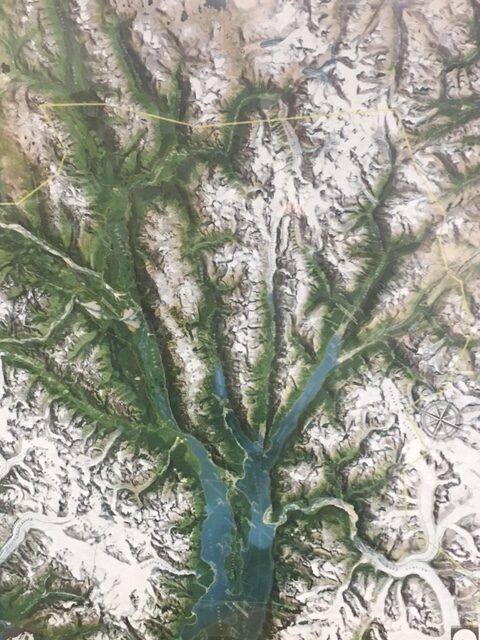History Relevance Campaign
The Chilkat Valley Historical Society, along with over 300 other US groups, has endorsed a statement about the importance of history, now being circulated by the History Relevance Campaign.** The Campaign supports history organizations that encourage the public to use historical thinking skills to actively engage with and address contemporary issues and to value history for its relevance to modern life.
The History Relevance Campaign’s Statement of Belief is “that history can have more impact when it connects the people, events, places, stories, and ideas of the past with the the people, events, places, stories, and ideas that are important and meaningful to communities, people, and audiences today.” The CVHS has said “Yes” to collaborative efforts with other organizations and this important nation-wide effort to shine a light on history.
Our Chilkat Valley Orchard Project (CVOP) is an example of the type of projects the History Relevance Campaign supports. The Project grew out of an idea for CVHS to reconnect with Charles Anway’s passion for horticultural experimentation. As our planet warms, growing conditions improve year-by-year. It is relevant to our community to renew Charlie’s experimental focus and spirit by working towards developing a fenced, professionally run demonstration/experimental orchard to serve the Chilkat Valley and the region.
Stay tuned for new developing programs and projects in 2021.

The Value of History: Seven Ways It Is Essential*
To Ourselves
- IDENTITY » History nurtures personal identity in an intercultural world. History enables people to discover their own place in the stories of their families, communities, and nation. They learn the stories of the many individuals and groups that have come before them and shaped the world in which they live. There are stories of freedom and equality, injustice and struggle, loss and achievement, and courage and triumph. These varied stories, they create systems of personal values that guide their approach to life and relationships with others.
- CRITICAL SKILLS » History teaches critical 21st century skills and independent thinking. The practice of history teaches research, judgment of the accuracy and reliability of sources, validation of facts, awareness of multiple perspectives and biases, analysis of conflicting evidence, sequencing to discern causes, synthesis to present a coherent interpretation, clear and persuasive written and oral communication, and other skills that have been identified as critical to a successful and productive life in the 21st century.
To Our Communities
- VITAL PLACES TO LIVE AND WORK » History lays the groundwork for strong, resilient communities. No place really becomes a community until it is wrapped in human memory: family stories, tribal traditions, civic commemorations. No place is a community until it has awareness of its history. Our connections and commitment to one another are strengthened when we share stories and experiences.
- ECONOMIC DEVELOPMENT » History is a catalyst for economic growth. People are drawn to communities that have preserved a strong sense of historical identity and character. Cultural heritage is a demonstrated economic asset and an essential component of any vibrant local economy, providing an infrastructure that attracts talent and enhances business development.
To Our Future
- ENGAGED CITIZENS » History helps people craft better solutions. At the heart of democracy is the practice of individuals coming together to express views and take action. By bringing history into discussions about contemporary issues, we can better understand the origins of and multiple perspectives on the challenges facing our communities and nation. This can clarify misperceptions, reveal complexities, temper volatile viewpoints, open people to new possibilities, and lead to more effective solutions for today’s challenges.
- LEADERSHIP » History inspires local and global leaders. History provides leaders with inspiration and role models for meeting the complex challenges that face our communities, nation, and the world. It may be a parent, grandparent or distant ancestor, a local or national hero, or someone famous or someone little known. Their stories reveal how they met the challenges of their day, which can give new leaders the courage and wisdom to confront the challenges of our time.
- LEGACY » History, saved and preserved, is the foundation for future generations. History is crucial to preserving democracy for the future by explaining our shared past. Through the preservation of authentic, meaningful places, documents, artifacts, images, and stories, we leave a foundation upon which future Americans can build. Without the preservation of our histories, future citizens will have no grounding in what it means to be an American.
*Source: www.historyrelevance.com
